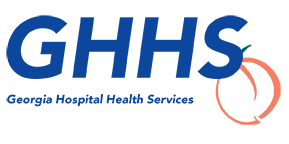
By Neill Marshall, Chairman, HealthSearch Partners
Working with healthcare organizations across the country, we’re seeing it every day — the expectations for healthcare C-suite talent are changing. Perhaps no role embodies this shift better than the CIO. A key contributor to the strategic vision for the organization, the CIO has become the AI expert, steering the organization through exciting, but potentially treacherous waters.
As David Chou points out in his Oct. 22, 2023, article “The Three Essential Traits of a Modern Healthcare CIO” in Forbes, a vast majority of healthcare CEOs rank technology as their top strategic priority.
Chou lists three traits that will lead to success for the modern-day healthcare CIO:
- Life-long learner. Continuously acquiring new skills and knowledge enables the CIO to enhance his or her expertise and drive innovation and progress in the organization.
- Decode the buzzword. The CIO is the critical bridge between technology and strategy, leading change management in technology implementations, facilitating seamless transitions, and fostering innovation in healthcare delivery. He or she must easily and clearly translate complex solutions for senior leaders.
- Master the basics. As Chou puts it, CIOs need to dive deep into the trenches and grasp all technology details down to the basics. At the end of the day, the essence of the role lies in core technology and ensuring everything functions properly.
In a session entitled “Leadership for Accelerating Transformation: New C-Suite Teaming and Alignment” presented by a panel of experts from the University of Alabama at Birmingham Department of Health Services Administration, Corewell Health, and the Scottsdale Institute, at ACHE’s 2024 Congress of Healthcare Leadership, summary findings of a nationwide study of healthcare CEOs and CIOs was discussed. Key observations related to the CIO include:
- Organizations on the path to a successful future understand tech/info/digital is their strategy, not an enabler of the strategy.
- CIOs are strategic, executive leaders who focus on problems to solve.
- CIOs build and sustain relationships at every level. They are purveyors of change and organizational disciplinarians, and they are engaged in developing talent.
- Emerging, operationally oriented leaders on the CEO career track may want to consider a CIO role on their journey.
“Healthcare organizations’ executive leadership is looking for CIO talent they can trust to help lead them into the rapidly evolving world of AI,” says Ivan Bartolome, President and CEO of HealthSearch Partners (HSP). “With the potential for AI’s involvement in all aspects of a healthcare organization’s operations, today’s healthcare CIO is not your father’s healthcare CIO. The career prospects for healthcare CIOs are only getting better and brighter.”
Based on previous and current searches and hours of discussions with healthcare C-suite executives, here’s HSP’s view of the new expectations of the CIO:
- Strategic alignment: the CIO plays a pivotal role in aligning AI initiatives with the hospital’s overall strategic objectives and daily operations including patient care delivery, business operations, and more.
- Data governance: the CIO leads the creation and management of a robust data governance program to ensure the quality, integrity, and security of data used in AI applications.
- Technology infrastructure: the CIO is the architect of the technological infrastructure necessary to support AI implementation, including hardware, software, and networking capabilities.
- AI integration: the CIO steers the integration of AI into existing systems and workflows to maximize efficiency and effectiveness across the organization.
- Regulatory compliance: the CIO ensures AI implementations comply with relevant regulations and standards to protect patient privacy and confidentiality.
- Vendor management: the CIO leads the selection, contracting, and management of AI vendors to ensure alignment with the hospital’s needs and objectives.
- Staff training and development: the CIO manages the vision for the development and training of staff to effectively utilize AI technologies and leverage their capabilities to improve patient care and operational efficiency.
- Ethical considerations: the CIO continually monitors and addresses ethical considerations related to AI such as bias in algorithms and the responsible use of patient data, to ensure AI initiatives align with the organization’s values, beliefs, and ethical standards.
- Performance monitoring and evaluation: the CIO monitors and evaluates the performance of AI systems and their impact on patient outcomes, operational efficiency and financial performance to fuel continuous improvement.
- Collaboration and innovation: the CIO is builds bridges toward a brighter future for the organization and the patients it serves by collaborating with other C-suite executives, clinical leaders, and other stakeholders to identify opportunities for innovation and leverage AI to address healthcare challenges and improve patient care delivery.
- Security oversight: the CIO plays a critical role in ensuring the cybersecurity of AI systems and data, safeguarding against potential threats and vulnerabilities that could compromise patient privacy and hospital operations.
Neill Marshall is Chairman of HealthSearch Partners, neillm@healthsearchpartners.com.




